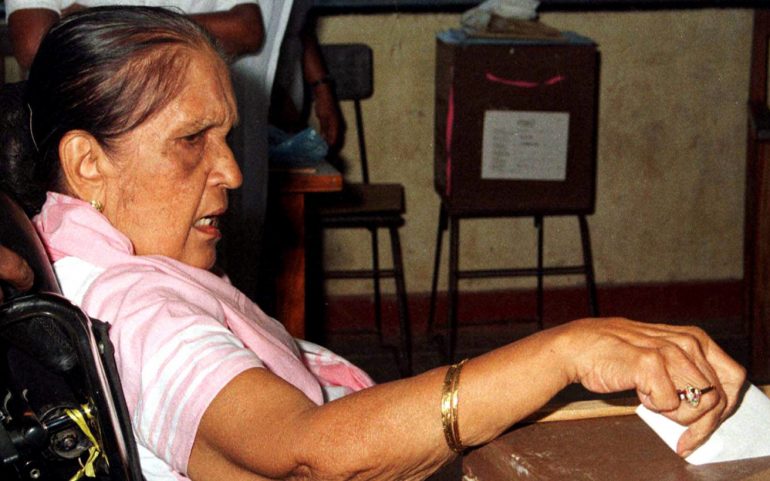When the Jassida Ardner was elected leader of the Labor Party in New Zealand in 2017, one of the first questions he had to answer is whether, at the age of 37 as a married mother, he would be able to win the general election and how his career can be combined with maternity.
"It is completely unacceptable in 2017 that women should answer such a question in their workplace. The choice to have children is a woman's right. Is it possible for this fact to determine whether the woman will get a job or not? " Ardern replied.
On the other hand, Angela Merkel, the iron lady of Germany and for some the most powerful woman in the world has spent her political career trying to put aside her gender and the truth is that she has not done badly.
Today, women presidents and heads of government do not suffer from the "loneliness" that Sirimavo Bandaranaike felt as the first woman prime minister in the world.
On July 21, 1960, Sirimavo Bandaranaike was sworn in as Prime Minister of Ceylon, or as he was later named, Sri Lanka. Although a novice in politics, the name of Sirimavo Bandaranaike will go down in history.
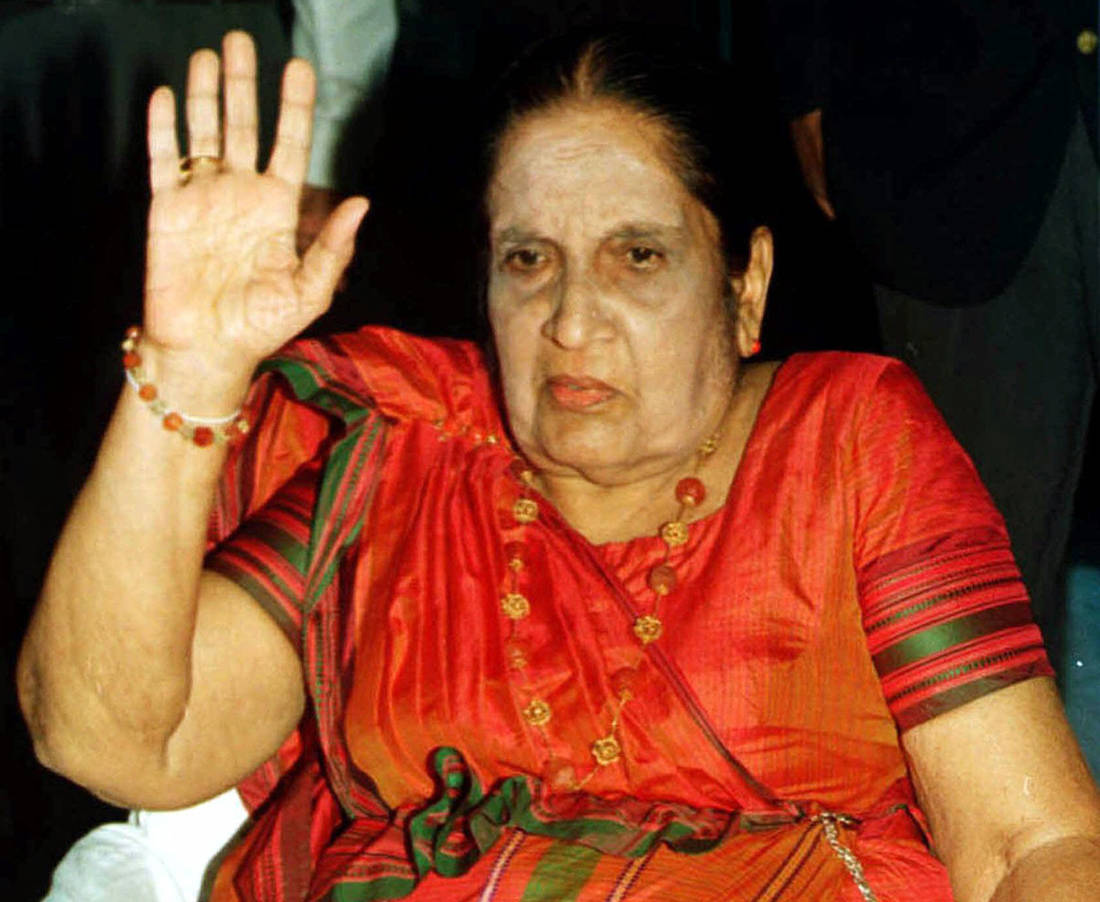
In 1940, 24-year-old Sirima married Solomon Bandaranaike. Together they will have three children. Eight years later, in 1948, when Ceylon became independent from Great Britain, Bandaranaike was elected to the United National Party, which won the election, and became Minister of Health. However, he quickly disagreed with the party, resigned and in 1952 founded the Freedom Party, to disagree with it and finally to form the United People's Front (alliance of national and socialist parties) with which Bandaranaike won by an overwhelming majority. elections of 1956 and became the country's prime minister.
Bandaranaike did not have time to rejoice in his glory for long. In September 1959 a dissident Buddhist monk shot him and Bandaranaike died.
Until then, Sirima had nothing to do with politics. However, after the murder of her husband, things changed. The previously timid wife and mother decided to enter the political arena as well. She would do what her husband had promised his voters and did not deliver. And why not, even more.
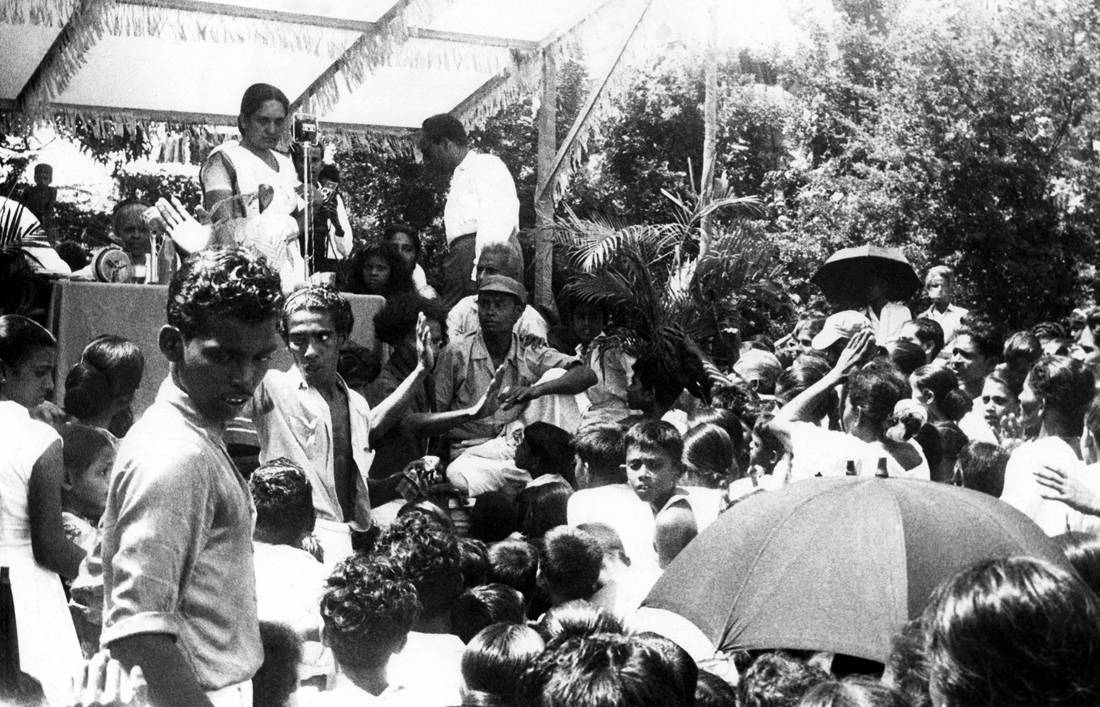
Sirima also acquired a "bo" in her name that expresses an expression of respect. Throughout her election campaign, addressing the crowds, she promised with tears in her eyes that she would continue her husband's work. This constant pre-election fate gave her the nickname "crying widow". But as soon as she won the 1960 election and became prime minister, Sirimavo Bandaranaike stopped mourning and resolutely took over the government of the country.
She was the first woman in the world to become prime minister, six full years before Indira Gandhi is elected Prime Minister of India.
Sirimavo Bandaranaike continued her husband's reform program: socialist economic policy, neutrality in international relations, the replacement of English with the Sinhala language, which made up the majority (72%) of the population. But he did not stop there. She wanted to leave her own mark in political life and she succeeded.
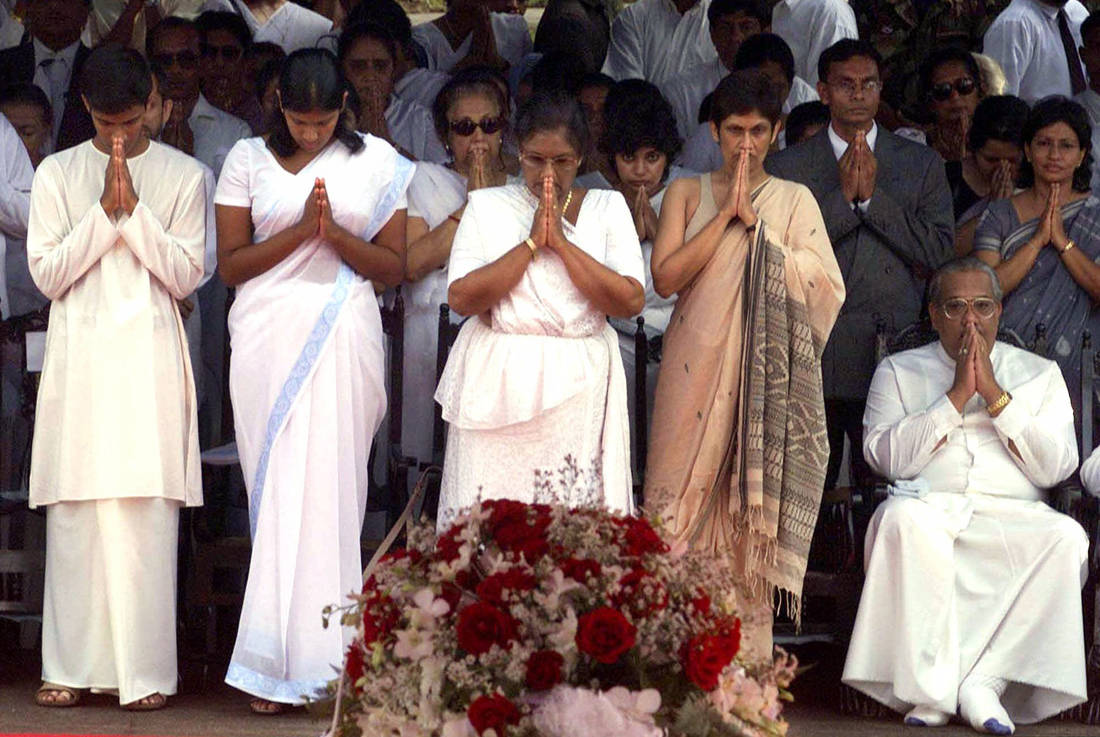
Sirimavo took its own initiatives: it nationalized foreign oil companies, and the state budget was now managed by the State Bank of Ceylon and the new People's Bank. The British military bases, by amicable agreement, were removed from the country and American aid was replaced by Soviet aid, mainly for industrialization projects. Also, while much emphasis was placed on education, the reforms promoted favored Sinhala Buddhists, completely ignoring the Tamil Hindus, the largest minority (21% of the population), who lived in northeastern Ceylon.
Bandaranaike's socialist reforms clashed with objections from her party's right-wing Buddhists, who stopped supporting the government. The government fell in 1964 and in the next elections Bandaranaike's party suffered a landslide defeat, despite being elected to parliament.
In the 1970 election, the militant Sirimavo Bandaranaike, leader of the United Left Front, won a landslide victory over her opponents, which helped her impose her reform plans: nationalize private companies, recapture land, left the country and closed the Israeli embassy.
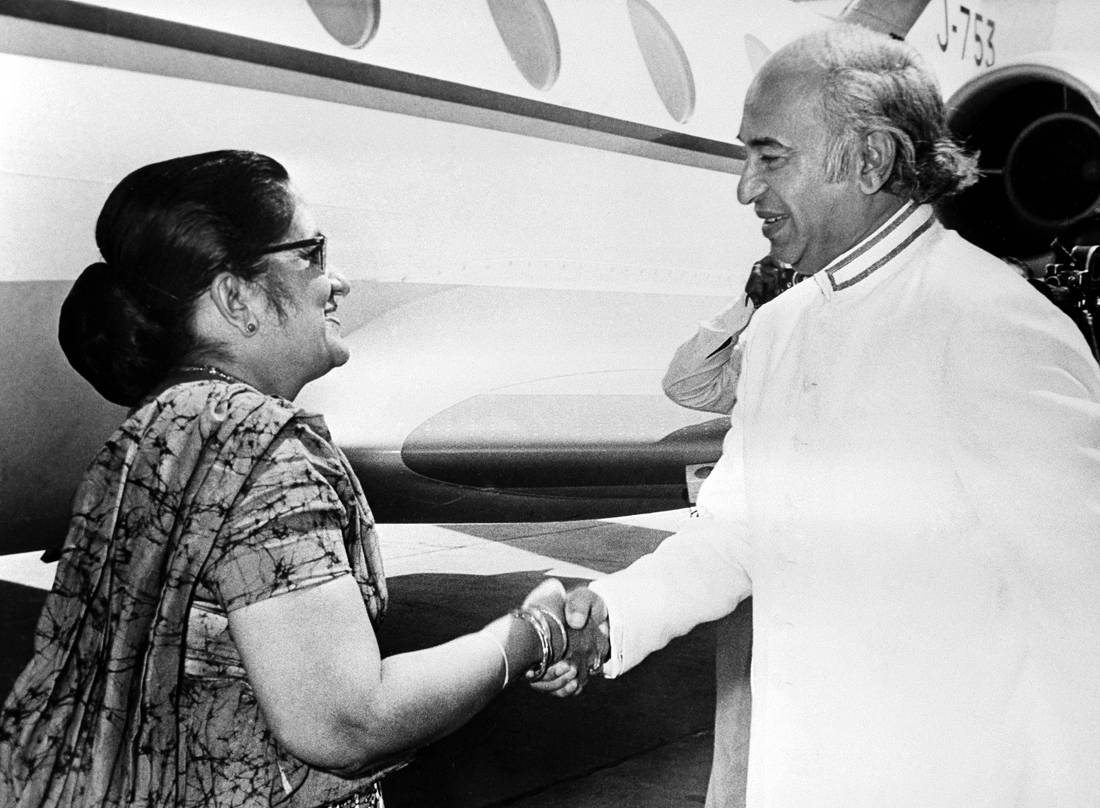
However, the pace of Bandaranaike's socialist reforms was considered too slow by far-left supporters of the Popular Liberation Front, who revolted in 1971 against the government. Bandaranaike did not hesitate to send the army against them and it is said that around 20.000 people were killed.
During her presidency she changed the name of the country from Ceylon to Sri Lanka (1972) and enacted a new Constitution, nationalized all private companies, schools - even religious ones -, newspapers and banned the import of most goods. It also established Buddhism as the official religion of the state.
In 1980, Parliament accused Bandaranaike of abuse of power as prime minister and stripped her of her political rights for seven years.
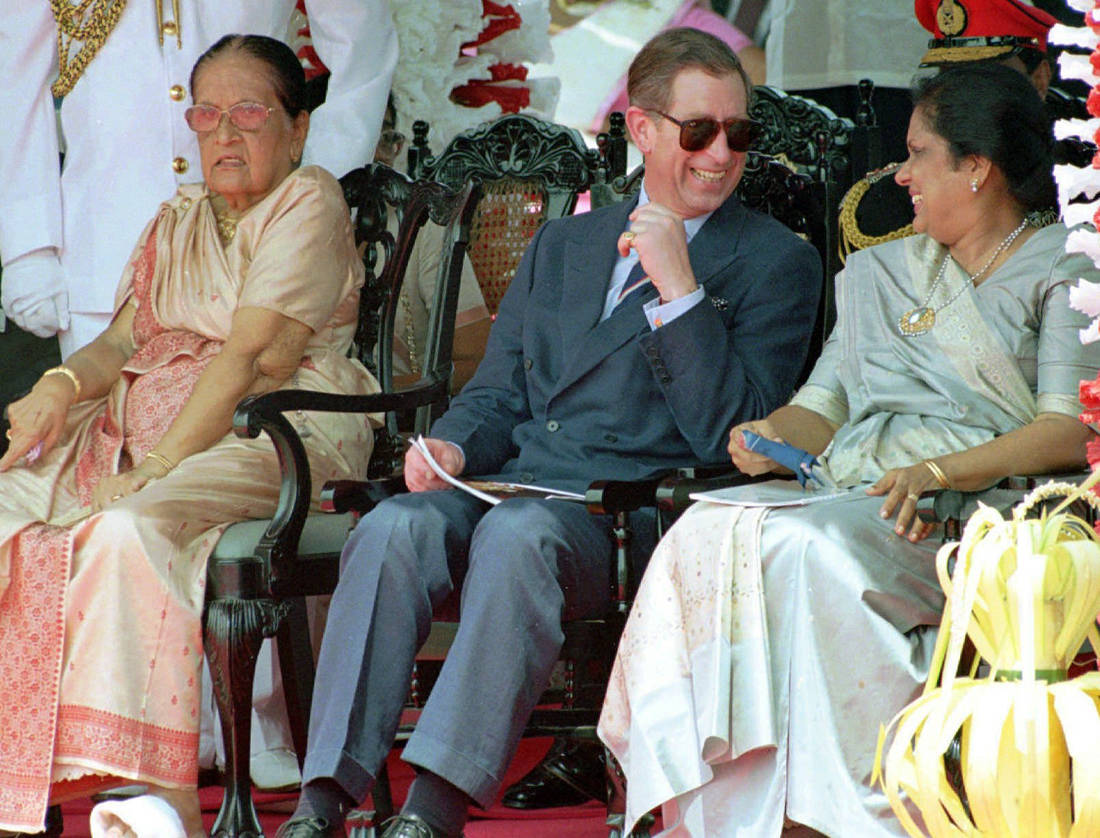
Sri Lanka, meanwhile, was torn apart by civil war between the Tamils, who had begun an armed struggle against Sinhala omnipotence. In 1987 India sent troops to restore peace, but Bandaranaike, who had regained her political rights, vehemently opposed the Indian intervention.
Despite her 72 years, Bandaranaike returned to the political arena in 1988, claiming the presidency, which had been upgraded: the president of Sri Lanka now held almost all the powers of this Republic in his hands, unlike the prime minister, whose the position was simply honorary. Bandaranaike lost the election, albeit by a very small margin.
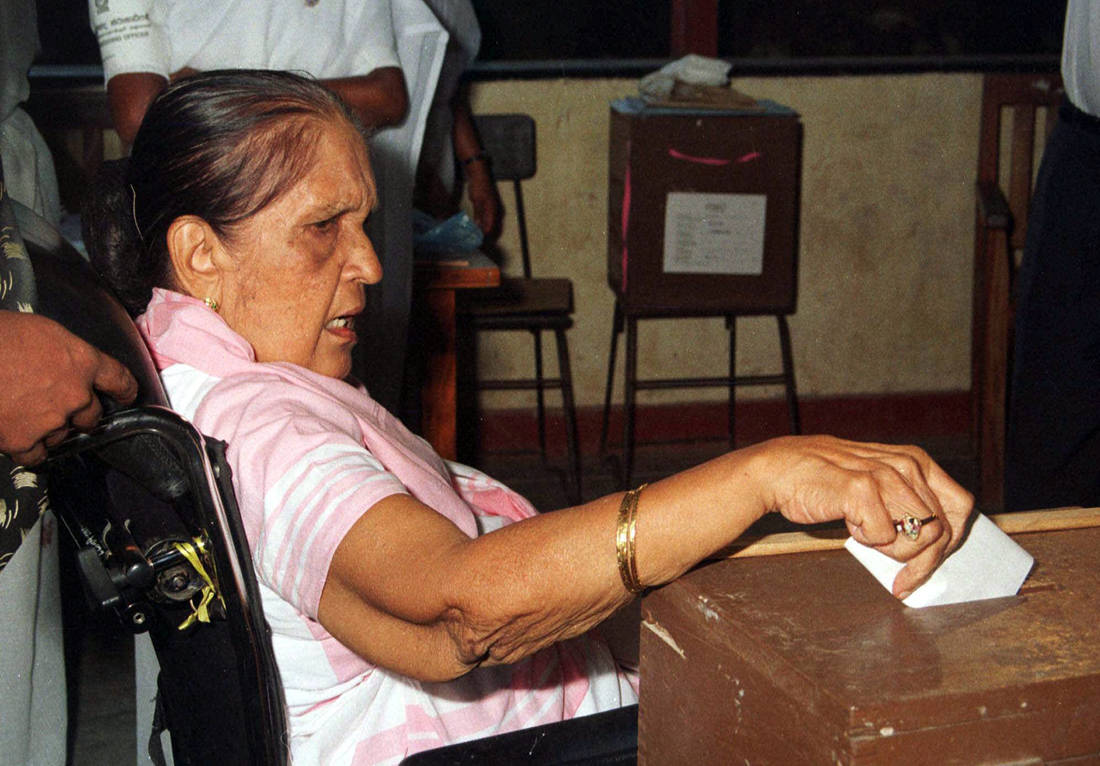
Suffering from diabetes and confined to a wheelchair, Sirimavo saw her family's political fortunes take a turn for the worse in 1994, when her daughter Chandrika Kumaratunga was elected president of Sri Lanka and offered the honorary post of prime minister to her mother. On the other hand, Sirimavo's son, Anura, dissatisfied with his sister's victory, sided with the opposition. Sirimavo's only child who has never been interested in politics is Sunetra's eldest daughter.
Sirimavo Bandaranaike died on October 10, 2000 at the age of 84. He previously managed to vote in the presidential election. Returning from the polling station to her home, Bandaranaike suffered a heart attack and ended up without seeing her daughter re-elected to the highest office in the country.
The news of Bandaranaike's death exploded like a bomb as residents approached polling stations to cast their ballots.
